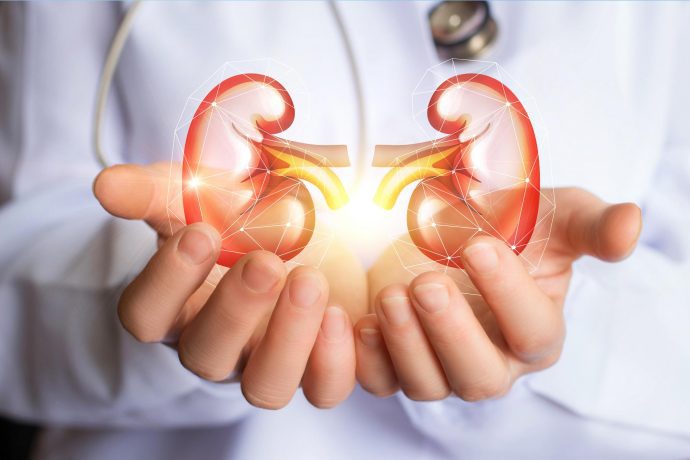These two bean-shaped organs known as kidneys are vital organs in the body. The kidneys perform a variety of functions. Approximately one-third of all blood that leaves the heart is filtered in the kidneys before being pumped to the cells and tissues throughout the body. Various complications can occur when the kidneys malfunction or stop working (kidney failure), including fluid retention, which can result in edema or swelling of the extremities, pulmonary edema or fluid in the lungs, hyperkalemia (high potassium levels in the blood), anemia, heart disease, and pericarditis (inflammation of the heart valves). The primary kidney function, as most people know, is to eliminate waste products from the body by flushing them out with urine. However, did you know that your kidneys are also responsible for at least seven other fantastic functions?
1. Keeping The Acid-Base Balance Under Control
Throughout the human body, acids and bases are constantly in a delicate state of equilibrium, as indicated by a parameter known as pH. The pH of the blood should be 7.35 and 7.45. For the kidneys to stay within this healthy range, they excrete acids and bases when the body has too much of them and retain these compounds when the body doesn’t have enough of them.
2. Keeping The Water Balance Under Control
The kidneys are one of the most important organs in the body for maintaining an adequate water balance. Adapting to one’s hydration status is accomplished by the kidneys by regulating the volume of urine they produce. When you drink a lot, your kidneys produce more urine, whereas when you are dehydrated, the opposite happens to your kidneys.

3. Keeping The Electrolyte Balance In Check
When the kidneys are functioning right, they remove some electrolytes from the blood, reintroduce some of them into the circulation, and excrete any excess electrolytes into the urine. Sodium and phosphate levels, as well as the overall health of one’s kidneys, are heavily influenced by the state of one’s health.
4. Removing Toxins And Waste Products From The Body
The kidneys are responsible for filtering out water-soluble waste products and toxins from the body and excreting them through the urine. That is precisely why kidney failure can quickly result in severe intoxication, as the body’s waste products accumulate and impair the organ’s ability to perform its functions.
5. Keeping Blood Pressure Under Control
Renin is an important enzyme that is produced by the kidneys. In the liver, angiotensinogen is converted into angiotensin I, which is then converted in the lungs into angiotensin II. Renin is responsible for this conversion. A substance called angiotensin II constricts blood vessels, causing blood pressure to rise as a result. When one’s blood pressure is excessively high, on the other hand, the kidneys produce more urine to reduce the volume of liquid circulating in the body and partially compensate for the excessively high pressure.
6. The Process Of Producing The Hormone Erythropoietin.
The kidneys are responsible for the production of a hormone known as erythropoietin. Essentially, this hormone’s primary function is to aid in the production of more red blood cells (erythrocytes), which are necessary for the transportation of oxygen throughout all of the body’s tissues and organ
7. Stimulate Vitamin D
Calcifediol is converted by the kidneys into calcitriol, which is the active form of vitamin D. Calcitriol is a hormone that circulates in the bloodstream and is essential for maintaining a healthy calcium and phosphate balance in the body, which is necessary for good bone growth.
One can’t live without kidneys, therefore you must be aware of your kidney functions. If you notice any symptoms like foamy urine, blood in urine, persistent itchiness with dry and itchy skin, you need to see the doctor right away.
It’s advisable to take Covid 19 Vaccine.

